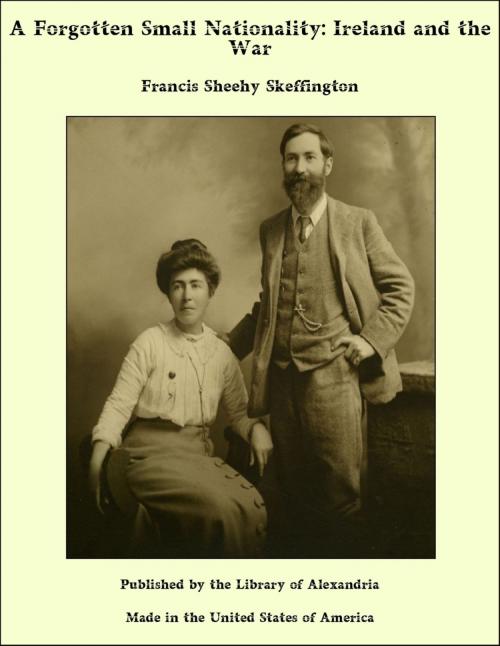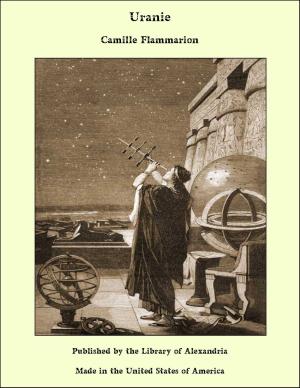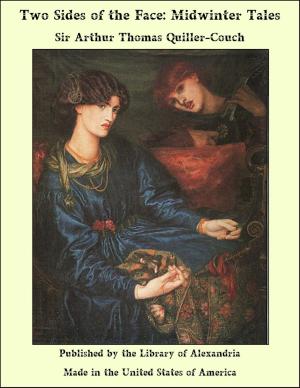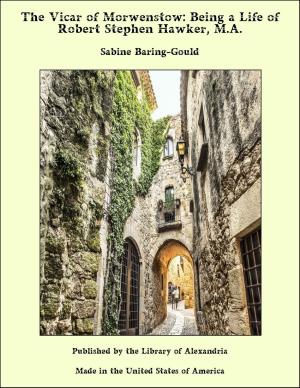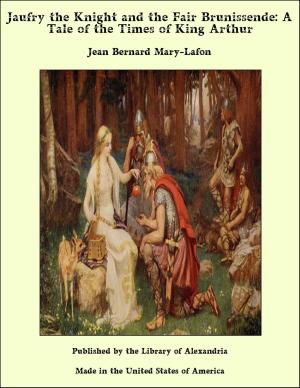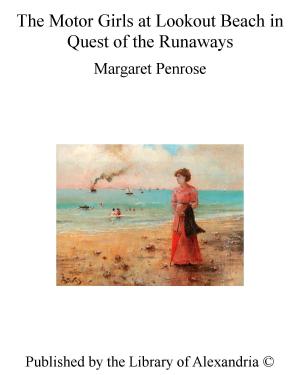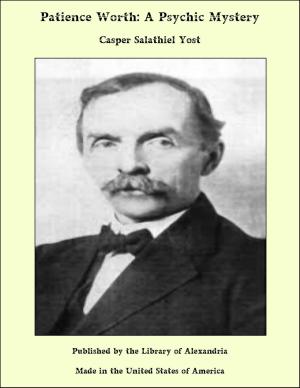A Forgotten Small Nationality: Ireland and the War
Nonfiction, Religion & Spirituality, New Age, History, Fiction & Literature| Author: | Francis Sheehy Skeffington | ISBN: | 9781465615848 |
| Publisher: | Library of Alexandria | Publication: | March 8, 2015 |
| Imprint: | Language: | English |
| Author: | Francis Sheehy Skeffington |
| ISBN: | 9781465615848 |
| Publisher: | Library of Alexandria |
| Publication: | March 8, 2015 |
| Imprint: | |
| Language: | English |
England has so successfully hypnotized the world into regarding the neighboring conquered island as an integral part of Great Britain that even Americans gasp at the mention of Irish independence. Home rule they understand, but independence! "How could Ireland maintain an independent existence?" they ask. "How could you defend yourselves against all the great nations?" I do not feel under any obligation to answer this question, because that objection, if recognized as valid, would make an end of the existence of any small nationality whatever. All of them, from their very nature, are subject to the perils and disadvantages of independent sovereignty. I neither deny nor minimize these. But the consensus of civilized opinion is now agreed that they are entirely outweighed by the benefits which complete self-government confers upon the small nation itself, and enables it to confer on humanity. If the reader will not admit this, I will not stay to argue the matter with him. I will merely refer him to the arguments in vogue in favor of the independence of Belgium as against Germany, or of the Scandinavian countries as against Russia. Neither will I stop to argue with those who say that Ireland should he content with home rule. Ireland has not got home rule, and, unless England is sufficiently humbled in this war to make Ireland's friendship worth buying, is not likely to get it. But what if it had? Bohemia has home rule within the Austro-Hungarian Empire. Is Bohemia contented? It is notorious that the great mass of the Czechs are eagerly longing for the moment when Russia will inflict such a blow upon the Austro-Hungarian Empire as may enable Bohemia to become an independent central European state. Again, if Bohemia, why not Ireland? There is an idea in some quarters, sedulously encouraged by England, with an eye on the friendship of the United States, that whatever may have been the case in the past, the English Government in Ireland has improved of late years. Let us therefore examine its conduct in Ireland during the months immediately preceding the war. A Liberal Government was in office in England, pledged to give home rule to Ireland. On the strength of that pledge, Mr. John Redmond and his party kept that Government in power for over four years, and enabled it to pass not merely the act for curbing the power of the House of Lords, but other measures, such as the National Insurance Act, in which Ireland had no interest or which were actually detrimental to Ireland. In Ulster Sir Edward Carson led, armed, and drilled a body of 80,000 men, pledged to resist by force the enactment of home rule. Their drilling and arming were in themselves unlawful; their avowed object was still more so, involving defiance of the enactments of that imperial Parliament to which they professed the utmost loyalty. Nevertheless, the Liberal Government allowed this open propaganda of rebellion, this aristocratically led and financed movement, to proceed unchecked.
England has so successfully hypnotized the world into regarding the neighboring conquered island as an integral part of Great Britain that even Americans gasp at the mention of Irish independence. Home rule they understand, but independence! "How could Ireland maintain an independent existence?" they ask. "How could you defend yourselves against all the great nations?" I do not feel under any obligation to answer this question, because that objection, if recognized as valid, would make an end of the existence of any small nationality whatever. All of them, from their very nature, are subject to the perils and disadvantages of independent sovereignty. I neither deny nor minimize these. But the consensus of civilized opinion is now agreed that they are entirely outweighed by the benefits which complete self-government confers upon the small nation itself, and enables it to confer on humanity. If the reader will not admit this, I will not stay to argue the matter with him. I will merely refer him to the arguments in vogue in favor of the independence of Belgium as against Germany, or of the Scandinavian countries as against Russia. Neither will I stop to argue with those who say that Ireland should he content with home rule. Ireland has not got home rule, and, unless England is sufficiently humbled in this war to make Ireland's friendship worth buying, is not likely to get it. But what if it had? Bohemia has home rule within the Austro-Hungarian Empire. Is Bohemia contented? It is notorious that the great mass of the Czechs are eagerly longing for the moment when Russia will inflict such a blow upon the Austro-Hungarian Empire as may enable Bohemia to become an independent central European state. Again, if Bohemia, why not Ireland? There is an idea in some quarters, sedulously encouraged by England, with an eye on the friendship of the United States, that whatever may have been the case in the past, the English Government in Ireland has improved of late years. Let us therefore examine its conduct in Ireland during the months immediately preceding the war. A Liberal Government was in office in England, pledged to give home rule to Ireland. On the strength of that pledge, Mr. John Redmond and his party kept that Government in power for over four years, and enabled it to pass not merely the act for curbing the power of the House of Lords, but other measures, such as the National Insurance Act, in which Ireland had no interest or which were actually detrimental to Ireland. In Ulster Sir Edward Carson led, armed, and drilled a body of 80,000 men, pledged to resist by force the enactment of home rule. Their drilling and arming were in themselves unlawful; their avowed object was still more so, involving defiance of the enactments of that imperial Parliament to which they professed the utmost loyalty. Nevertheless, the Liberal Government allowed this open propaganda of rebellion, this aristocratically led and financed movement, to proceed unchecked.
